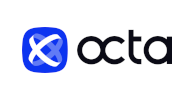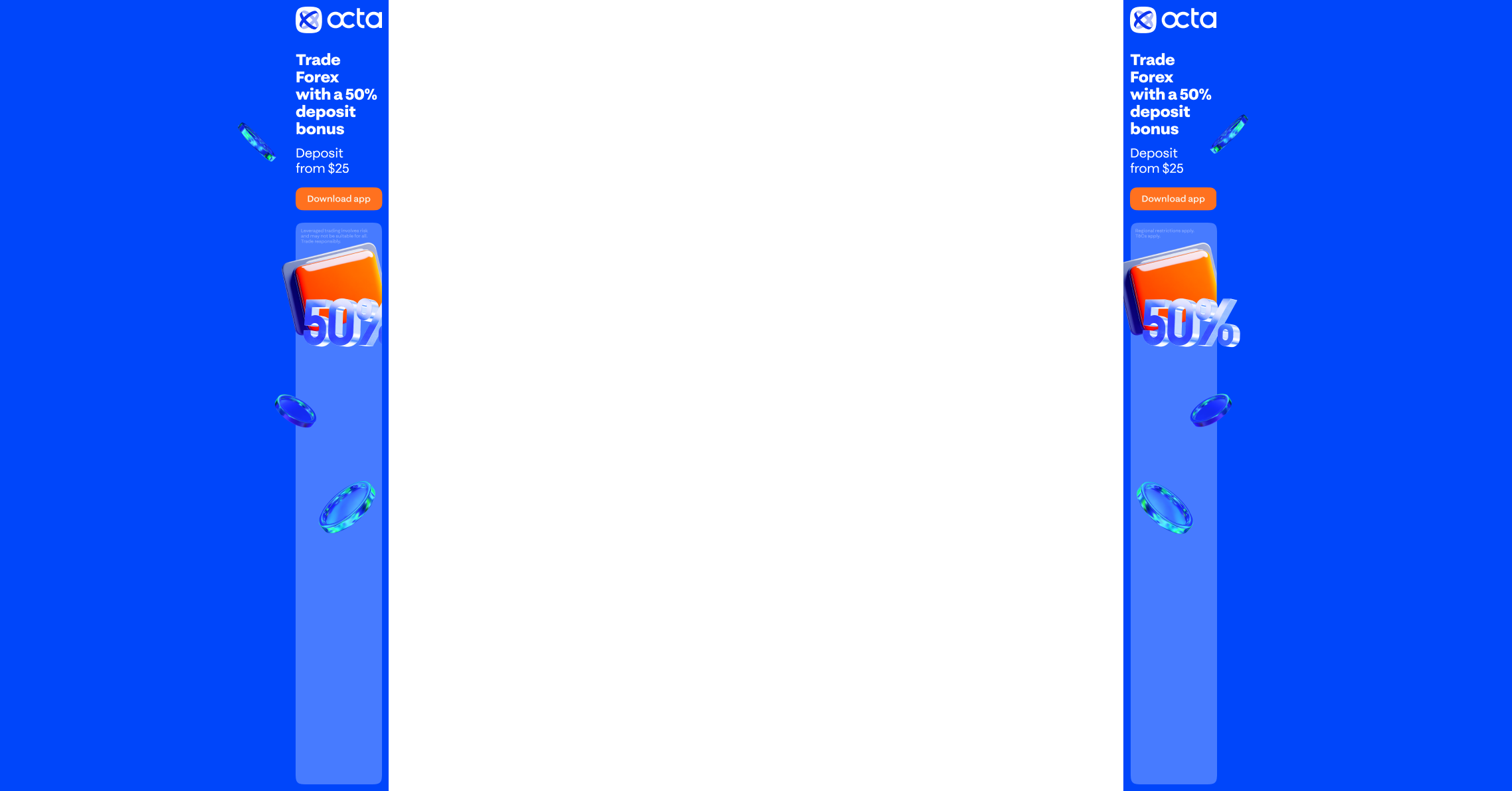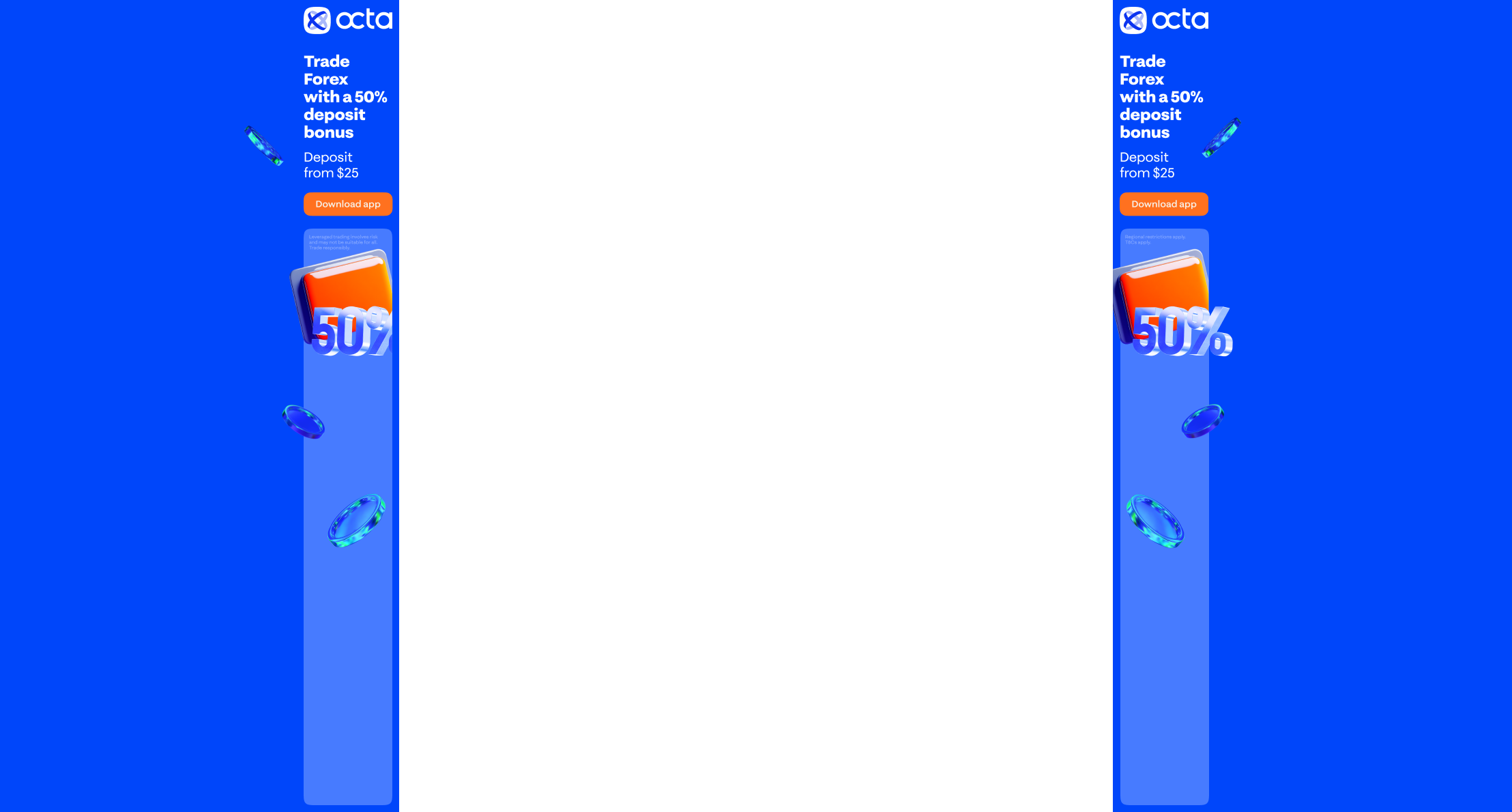U.S. Dollar, the world's reserve currency and the ultimate safe-haven asset, has been the world's worst-performing major currency in 2025 so far. Octa Broker ex

The U.S. Dollar, the world's reserve currency and the ultimate safe-haven asset, is now the world's worst-performing major currency in 2025. Octa Broker explains why.
The historical role of the U.S. dollar as the world's leading safe-haven currency is under threat. Despite rising macroeconomic uncertainty, investors are fleeing the U.S. dollar, defying conventional safe-haven flows. Greenback's rapid depreciation over the past weeks has fuelled speculation over the loss of confidence in its safe-haven status. With USDCHF trading news multi-year low, Octa Broker analyzes if we are in the midst of dramatic regime change in markets and explains why the U.S. dollar is struggling amid global trade turmoil.
Introduction
The U.S. dollar (USD), the buck or the greenback, as it is often informally referred to, has long occupied a rather exclusive position in global finance. Ever since the end of World War II and the establishment of the Bretton Woods monetary system, the greenback has played a crucial role in facilitating cross-border transactions and smoothing international trade flows, in addition to serving as a primary reserve currency for central banks around the world. Being the official currency of the world's largest economy, the United States, has certainly helped the dollar maintain its dominant position. Indeed, the sheer size of the U.S. economy, its deep and liquid financial markets, strong private property rights and the rule of law enshrined in the U.S. Constitution, and last but not least, the unrivalled power of the U.S. military, made the dollar the most trusted global currency. As a result, the greenback became what market participants call ‘a safe-haven currency’, a refuge for investors during times of macroeconomic uncertainty or market turmoil. Most recently, however, the instability in global financial markets triggered by rising trade tariffs and exacerbated by fears of a global recession seems to have upended this narrative, undermining the dollar's established role.
Trade tensions
The U.S. dollar has been depreciating almost relentlessly since mid-January. In just three and a half months, the Dollar Index (DXY), which measures the value of the greenback relative to a basket of six major foreign currencies, including the euro, Japanese yen, British pound, Canadian dollar, Swedish krona, and Swiss franc, lost more than 10% in value (from 13 January high to 21 April low). On 11 April, it breached the critical 100.00 level, and although it has since increased slightly, it remains by far the worst-performing currency among other major currencies this year so far. This decline has raised an important question: Is the U.S. dollar losing its safe-haven status, or is it merely a temporary setback?
The catalyst for the dollar's slide is rooted in the escalating trade tensions, particularly the aggressive tariff policies enacted by U.S. President Donald Trump. In recent weeks, the U.S. imposed a 10% baseline tariff on all imports, with much steeper duties imposed on key trading partners like China, which, in turn, retaliated with its own 125% levies on U.S. goods. These moves have stoked fears of a global recession, as international supply chains may get disrupted with potentially devastating consequences for the world economy. Historically, such uncertainty would bolster the dollar, as investors seek the safety of U.S. assets. However, this time around, the greenback is faltering, while alternative safe-haven currencies like the Swiss franc (CHF) and Japanese yen (JPY) are gaining ground.
Hedging
Kar Yong Ang, a financial market analyst at Octa Broker, says that the U.S. dollar's recent weakness is driven by a diversification shift among investors into alternative safe-haven currencies, motivated by risk-hedging and fears over the growth prospects of the U.S. economy. 'We are witnessing a major reallocation of capital. Market participants realise that in a trade war, there are no winners. In the short term, the U.S. economy will face the consequences, and they will not be pretty. Big players with large investments in the U.S. realised they needed to hedge their currency risk, so they moved into the Swiss franc and the Japanese yen. Also, higher tariffs are fuelling recession fears, so traders have increased their bets on additional rate cuts by the Fed [Federal Reserve]. That too had a bearish effect on the greenback'.
Indeed, on April 21, USDCHF dropped below the 0.80500 mark, the level unseen in almost 14 years, while USDJPY was hovering near the critical 140.00 area, a drop below which will open the way towards new multi-year lows. Significant shifts in capital flow allocations have prompted some analysts to conclude that the U.S. dollar is facing a crisis of confidence. However, Octa analysts have a different view and believe that the current situation doesn't reflect a broad erosion of investors' long-term trust in the U.S. dollar. Kar Yong Ang said: 'The issue isn't so much a fundamental loss of faith in the U.S. dollar's long-term prospects. What we are witnessing right now is a dramatic, yet logical response to the probable economic implications of Donald Trump's trade policies. You have an administration, which is effectively re-structuring the global trade order, that does not conceal its dissatisfaction with the Fed and apparently believes in a weak dollar. If you're a foreign investor in the U.S., you simply cannot afford to be unhedged these days. But also, let's not forget that the greenback has been falling from relatively high levels, so a healthy downward correction was long overdue'. In other words, the recent slide in the U.S. dollar is not an unusual phenomenon or an anomaly; it is quite natural and probably a short-term occurrence. In fact, even after an 11% drop in 2025, the greenback is still some 38% above its historical low set in 2008. Furthermore, it is clear that once key global actors adopt more conciliatory diplomatic rhetoric and engage in active trade negotiations, the situation will normalise immediately.
Conclusion
As for the dollar's long-term prospects, its dominant status will likely continue to be challenged, but no single currency can take its crown for now. According to the Bank of International Settlements (BIS), the U.S. dollar still accounts for nearly 88% of international transactions, and its dominance in Forex markets remains unmatched, with daily trading volumes dwarfing those of the yen or franc. According to the International Monetary Fund (IMF), more than half (57.8%) of the $12.4 trillion in global foreign exchange reserves were in U.S. dollars. Therefore, while the greenback may not be the automatic refuge it once was, its role as a Forex cornerstone endures for now.
Compliance reminder: trading Contracts for Difference (CFDs) carries a high level of risk and may not be suitable for all investors. Emotional trading can increase this risk. Always trade within your means and understand the risks involved.
Octa is an international broker that has been providing online trading services worldwide since 2011. It offers commission-free access to financial markets and various services used by clients from 180 countries who have opened more than 52 million trading accounts. To help its clients reach their investment goals, Octa offers free educational webinars, articles, and analytical tools.
The company is involved in a comprehensive network of charitable and humanitarian initiatives, including the improvement of educational infrastructure and short-notice relief projects supporting local communities.
Since its foundation, Octa has won more than 100 awards, including the 'Most Reliable Broker Global 2024' award from Global Forex Awards and the 'Best Mobile Trading Platform 2024' award from Global Brand Magazine.












